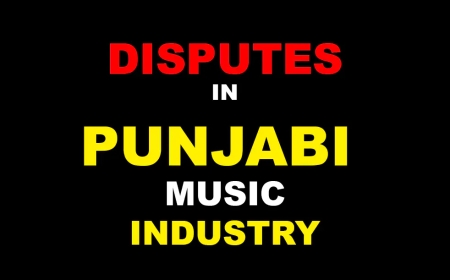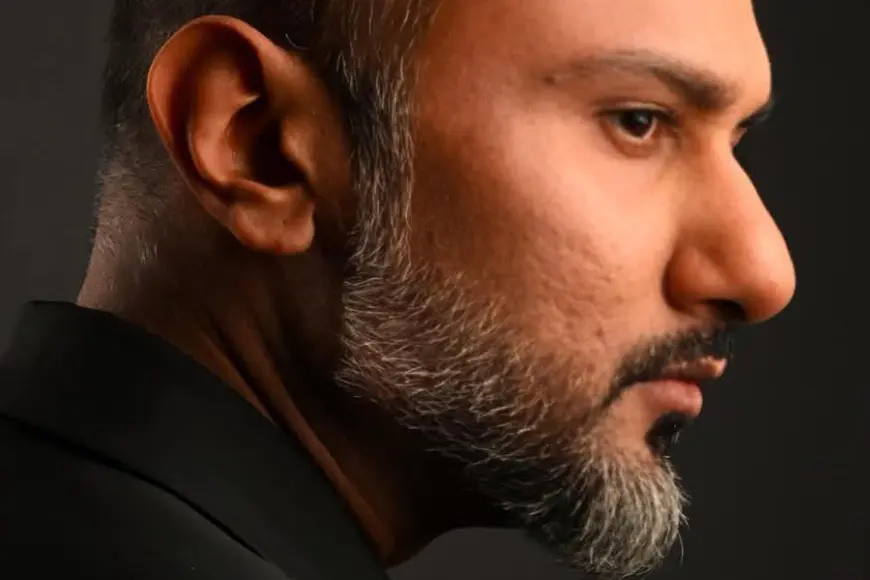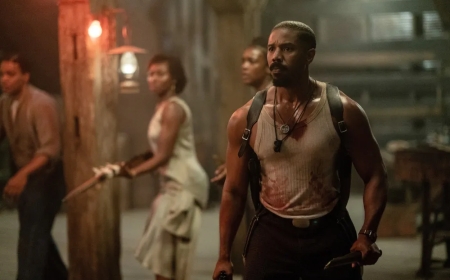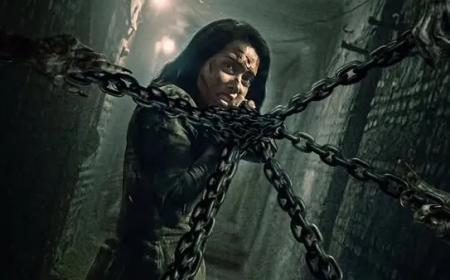The Untold Story of Punjab 95: A Film Censored for Revealing Dark Truths
Explore the controversial history behind Punjab 95, a film exposing human rights abuses that remains unreleased due to government censorship. Learn about the real-life events that inspired this suppressed story.
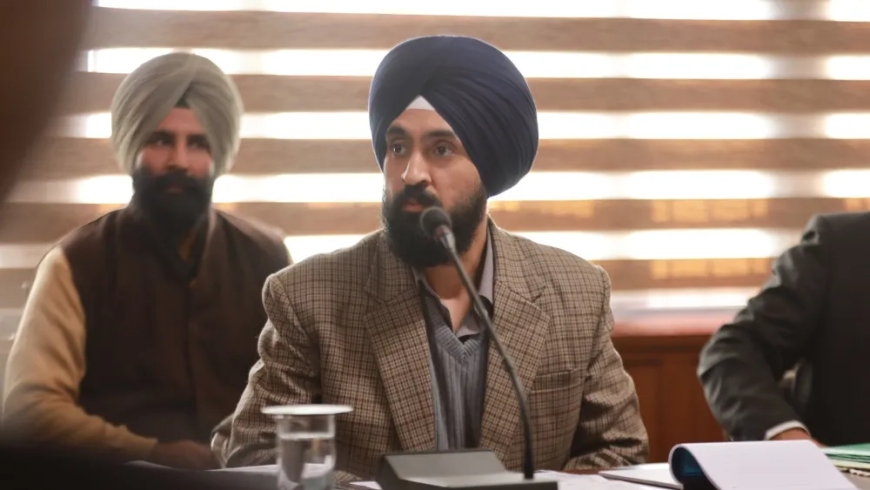
In 2022, a film was made that shines a light on one of the darkest periods in Punjab's history. This wasn't just any movie - it was based on true events that had been buried for decades. The film is called Punjab 95, and though it was completed three years ago, it still hasn't received clearance from the Central Board of Film Certification (CBFC) for release. In fact, the censor board is demanding over 85 cuts before it will allow the film to be shown.
Why is this film so controversial? What truths does it reveal that are being suppressed? To understand, we need to look back at the tumultuous period of the 1990s in Punjab.
The Backdrop: Punjab in the 1990s
In the years following 1984 and the anti-Sikh violence, the atmosphere in Punjab was tense and volatile. By 1992, Congress leader Beant Singh had become Chief Minister of Punjab. Around the same time, KPS Gill was reinstated as Director General of Police - the same KPS Gill who had previously been removed from that post for allegedly promoting violence in the state.
During this period, Sikh youth across Punjab began mysteriously disappearing. Families reported that their sons and brothers were being taken from their homes by police, never to be seen again. When they tried to file missing persons reports or get information, they were stonewalled.
Rumors began to circulate that these young men were being killed in fake "encounters" and their bodies disposed of secretly. But there was no hard evidence, and the families had no recourse for justice.
Enter Jaswant Singh Khalra
It was in this climate that a human rights activist named Jaswant Singh Khalra decided to investigate what was really happening. Khalra began meticulously documenting cases of disappeared youth and gathering evidence.
What he uncovered was shocking. Khalra found records showing that the bodies of thousands of young Sikh men had been secretly cremated by police, listed as "unidentified" or "unclaimed". He gathered data from multiple cremation grounds across several districts of Punjab.
In total, Khalra's investigation revealed evidence that approximately 25,000 bodies had been secretly cremated in just three districts of Punjab. He estimated the total number across the state could be as high as 150,000.
This was not just a few isolated incidents - it pointed to a systematic campaign of extrajudicial killings and secret disposal of bodies to cover up human rights abuses on a massive scale.
Exposing the Truth
In 1995, Khalra held a press conference and released his findings to the media. He directly accused high-ranking police and government officials, including KPS Gill and Chief Minister Beant Singh, of being responsible for these abuses.
Khalra's revelations sent shockwaves through Punjab and beyond. Here was hard evidence of thousands of extrajudicial killings that the government had tried to cover up.
The police and government officials named by Khalra vehemently denied the allegations. KPS Gill held his own press conference claiming the missing youth had simply moved abroad for work and their families were filing false reports to claim compensation.
But Khalra continued to push for justice. He filed court cases and even traveled to Canada and Australia to present his evidence to their parliaments, trying to bring international attention to what had happened in Punjab.
Silencing the Whistleblower
As Khalra's campaign gained momentum, he began receiving threats. He made public statements that if anything happened to him, KPS Gill and Beant Singh should be held responsible.
On September 6, 1995, Khalra was abducted from outside his home in broad daylight. Despite eyewitness accounts, police refused to investigate his disappearance.
It wasn't until 10 years later, in 2005, that the truth of what happened to Khalra finally came to light. A special police officer testified that Khalra had been detained and tortured, eventually dying in custody on October 27, 1995.
Six police officers were ultimately convicted for Khalra's abduction and murder. But the high-ranking officials he had accused were never held accountable.
Punjab 95: Bringing the Story to Light
This dark chapter of Punjab's history - the mass disappearances, secret killings, and cover-ups - is what the film Punjab 95 seeks to portray. It tells the story of Jaswant Singh Khalra's courageous investigation and his ultimate sacrifice in pursuit of truth and justice.
But the Indian government seems determined to prevent this story from reaching a wide audience. The censor board's demand for over 85 cuts to the film would essentially gut it of all meaningful content.
Among their demands:
- Changing Jaswant Singh Khalra's name in the film
- Changing the names of the districts where he conducted his investigation
- Removing or altering nearly all references to specific events and people involved
Why is the government so afraid of this film being released? A few possible reasons:
-
Reopening old wounds: The events portrayed are still raw for many in Punjab. The government may fear the film could stir up anger and resentment.
-
Embarrassment: While the current ruling party was not in power during the events portrayed, the film still shows grave human rights abuses by Indian police and government officials. This could be embarrassing on an international stage.
-
Setting a precedent: If this film is allowed to portray these events, it could open the door for more films and media examining other controversial periods in India's history.
-
Ongoing impunity: Some of the high-ranking officials implicated in these events have never faced justice. The government may want to continue suppressing evidence of their involvement.
The Bigger Picture: Censorship and Historical Memory
The censorship of Punjab 95 raises important questions about how societies deal with difficult aspects of their history:
- Who gets to control the narrative about historical events?
- Should governments be able to suppress art and media that portray uncomfortable truths?
- How can a society move forward and heal from past traumas if the truth is buried?
Other films dealing with controversial historical events in India have been released, like The Kashmir Files about the exodus of Kashmiri Pandits. So why is Punjab 95 being treated differently?
Some argue that allowing the film to be released - even with some modifications - would be better than total suppression. It could at least start conversations about this period of history.
Others feel that any censorship or alteration of the film's content would be a disservice to the truth and to Jaswant Singh Khalra's legacy.
The Power of Film to Shape Historical Memory
Movies have a unique power to bring historical events to life and shape how they are remembered by the public. A well-made film can create empathy and understanding in a way that dry historical accounts often cannot.
This is likely why the government is so concerned about Punjab 95. They know that a dramatic portrayal of these events could create strong emotional reactions in viewers and change how this period of history is perceived.
By censoring the film, the government is essentially trying to control the narrative and limit public engagement with this difficult chapter of Punjab's past.
Looking Forward: Will the Truth Prevail?
As of now, the fate of Punjab 95 remains uncertain. The filmmakers are fighting the censor board's demands, arguing that the story needs to be told in full.
Meanwhile, the memory of Jaswant Singh Khalra and the thousands of disappeared young men lives on in Punjab. Families are still seeking answers and justice decades later.
Perhaps the controversy around this film will end up bringing more attention to the real historical events it portrays. The attempt to censor it has already sparked discussions about this period that might not have happened otherwise.
Ultimately, the story of Punjab 95 is about more than just one film. It's about a society grappling with painful truths and the ongoing struggle between those who want to expose injustice and those who would prefer to keep it hidden.
As we look to the future, we must ask ourselves: What is the cost of forgetting? And what could be gained by honestly confronting the darker chapters of our shared history?
Image credit: IMDB
What's Your Reaction?
 Like
0
Like
0
 Dislike
0
Dislike
0
 Love
0
Love
0
 Funny
0
Funny
0
 Angry
0
Angry
0
 Sad
0
Sad
0
 Wow
0
Wow
0


